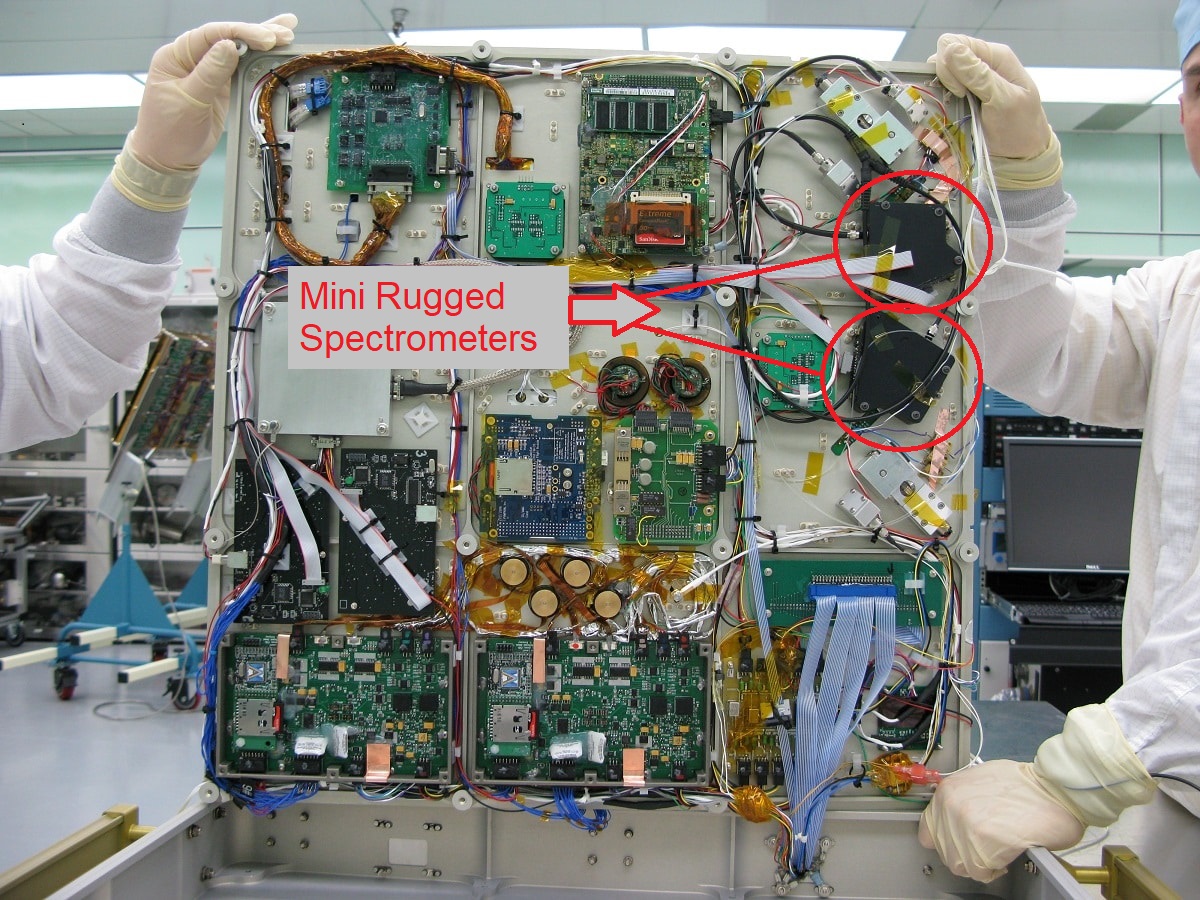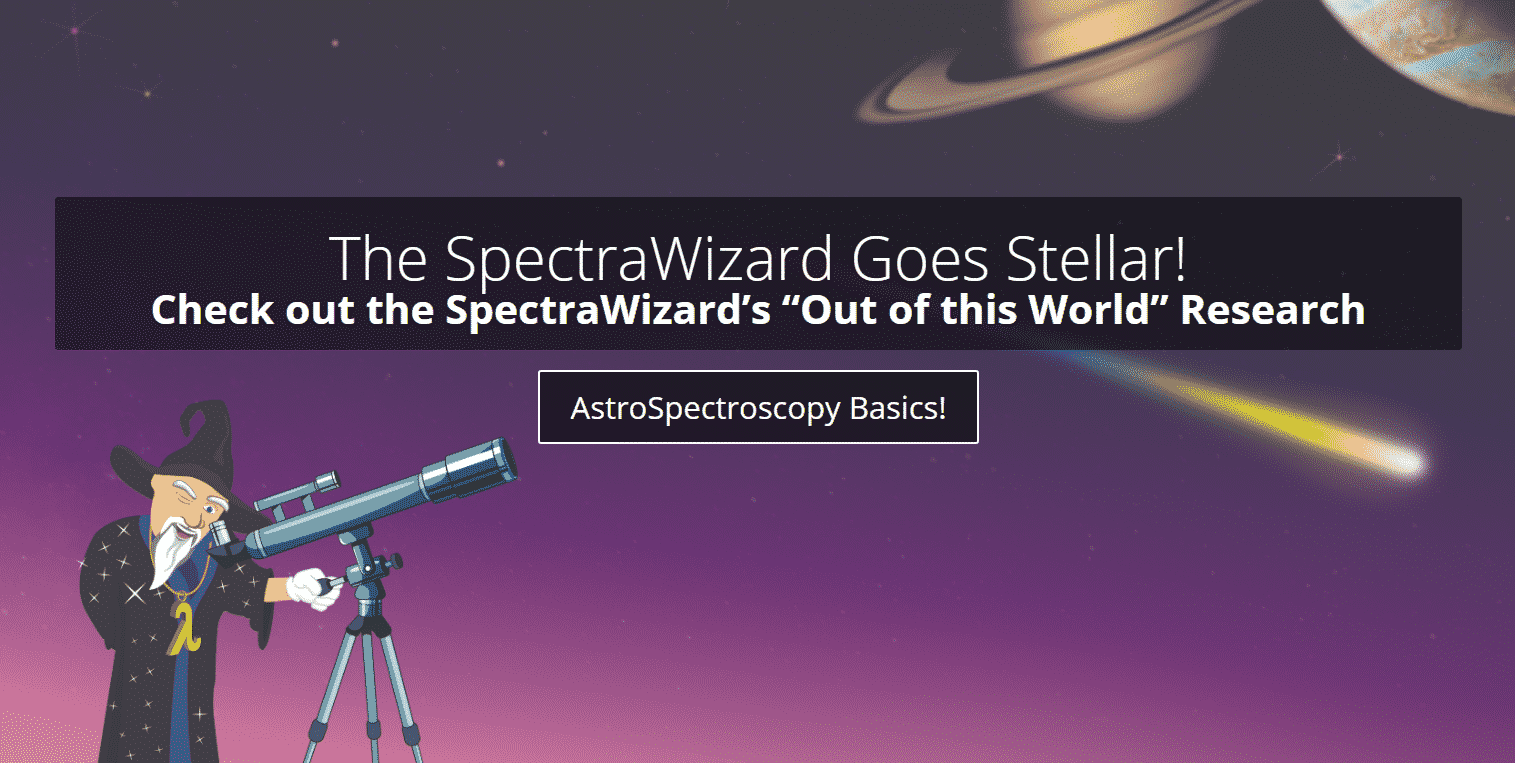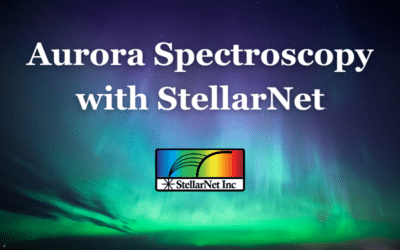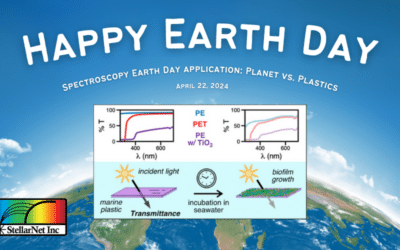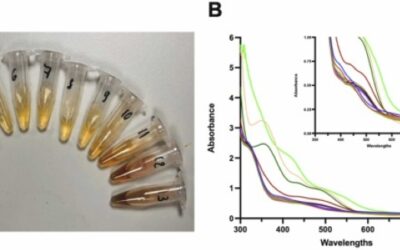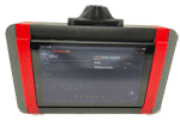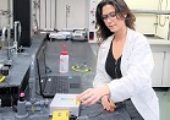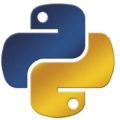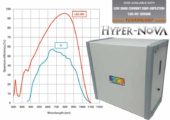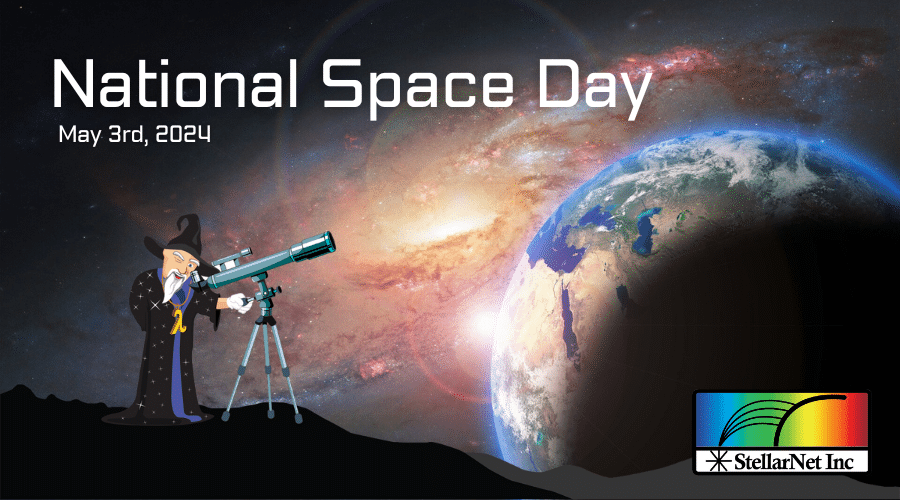
May 3rd is National Space Day! At StellarNet, we celebrate space day everyday. Our products are spaced-themed with names such as “BLACK-Comet”, “Quasar”, “DWARF-Star”, and more! Space travel is no stranger to our spectrometers. They’ve even been able to do scientific research on NASA’s International Space Station!
Below are some articles we’ve done over the years that are related to everything SPACE!
Flashback Friday- Spectrometers in Space! Rugged, Reliable, StellarNet!
Our BLUE-Wave spectrometers were launched into space and mounted on the ISS as part of the MISSE-7 experiment, designed to take real-time spectra to provide insight on how the environment of space affects different optical properties of materials. Many of the materials were designed for space exposure and are considered next generation materials for space travel…
StellarNet Customer Spotlight – Launching Spectrometers and Careers
The Harding University Atmospheric and Space Research Team operates under the leadership of Dr. Ed Wilson, Professor of Chemistry in Harding University’s Department of Chemistry and Biochemistry, and longtime StellarNet customer. The team’s research has been funded by several sources over the years, including NASA Astrobiology Science and Technology Instrument Development (ASTID), NASA Experimental Program to Stimulate Cooperative Research (EPSCoR), and the Arkansas Space Grant Consortium…
Attenuation of Ultraviolet Radiation in Rocks and Minerals: Implications for Mars Science
The effects of radiation on the survivability of key biosignatures are a driving factor in exploration strategies throughout the solar system. Ultraviolet (UV) radiation, especially shorter wavelength UVC radiation, is known to be damaging to organisms and to potential organic biosignatures; however, the interaction of UV radiation with minerals and rocks is not well understood…
Optimizing Controlled-Release Fertilizers for Lettuce and Mizuna Grown on the International Space Station
Astronaut diets on the International Space Station (ISS) depend on resupplied packaged food. However, missions to Mars of 3 – 5 years will not accommodate re – supply. In addition, many human macro and micronutrients degrade during long – term storage. Thus, growing nutritional plants aboard ISS is essential for providing astronauts with fresh, healthy produce…
The SpectraWizard Goes Stellar- AstroSpectroscopy Basics
Spectroscopy is one of the most valuable tools that an astronomer has for studying the Universe. Spectrometers help us determine the chemical compositions, physical properties, and velocities of astronomical bodies light-years away…
Recent Customer Applications
Aurora Spectroscopy with StellarNet
This past weekend, intense auroras lit up the sky due to massive solar flares and coronal mass...
Earth Day 2024 with StellarNet: Planet vs. Plastics
Happy Earth Day! Today serves as a reminder of the importance of environmental conservation and...
Composite films produced from upcycling of tropical fruit seeds are capable of monitoring shrimp freshness
Tram Anh Ngoc Le, Wei Ning Chen Published: 15 January 2024 | School of Chemistry, Chemical...

